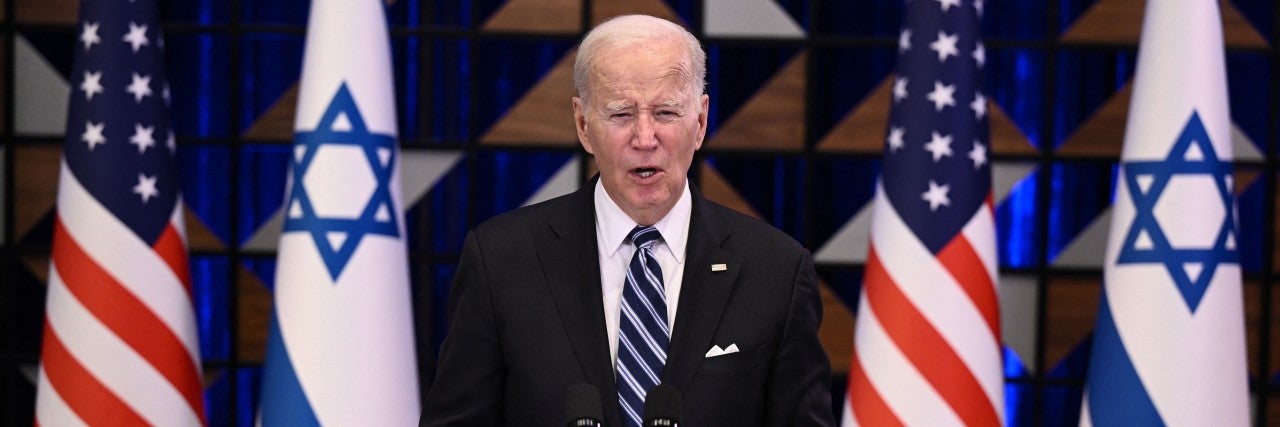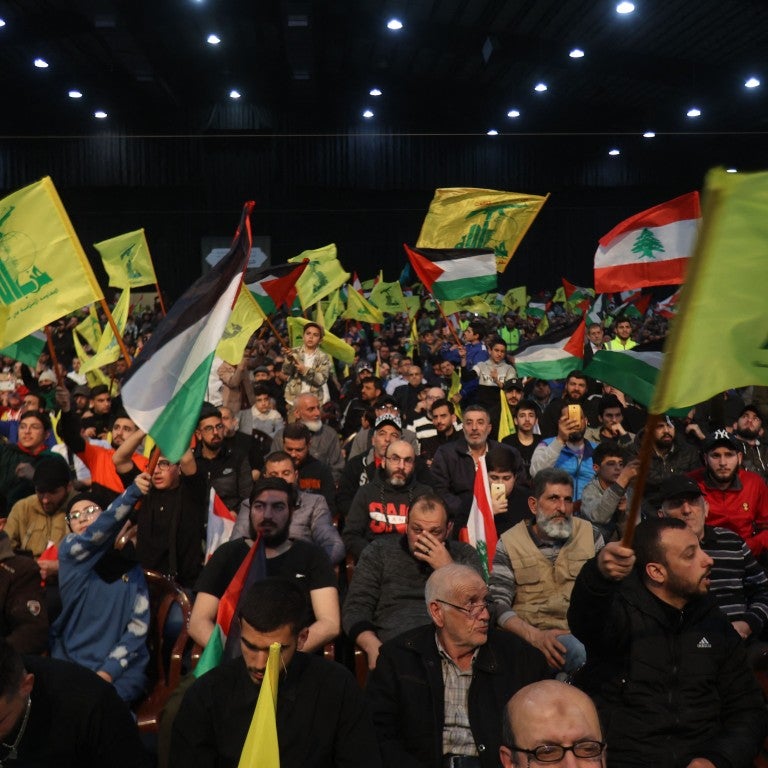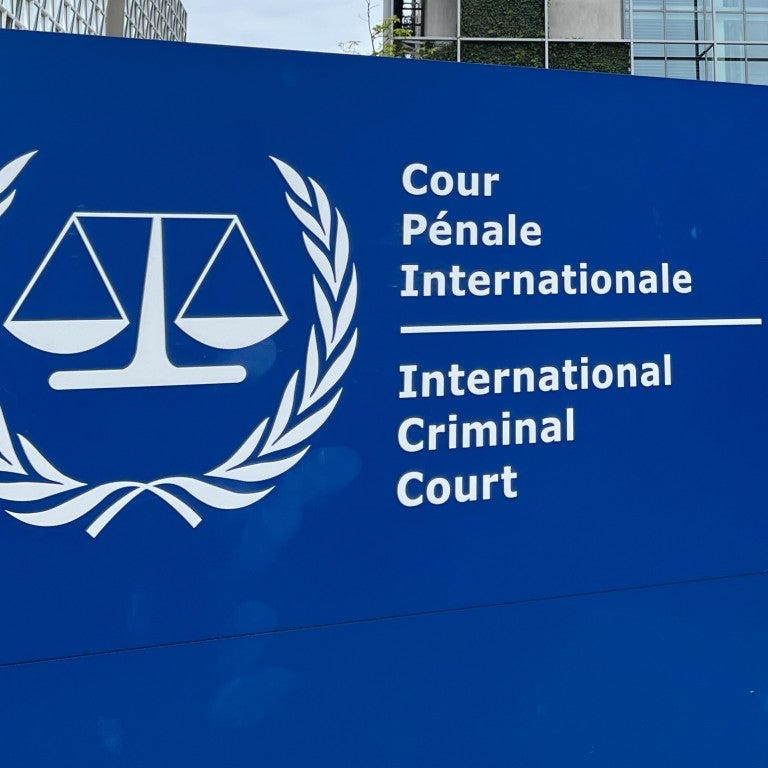October 19, 2023
Jason Isaacson, AJC’s Chief Policy and Political Affairs Officer, joins us to break down U.S. President Joe Biden’s historic wartime visit to Israel and his message to Iran and its terror proxies Hamas and Hezbollah. Jason also shares his take on the fast-moving situation, including the fallout from the explosion at the Gaza hospital, the announcement of humanitarian aid to Gaza, and the growing antisemitic attacks in the Middle East and Europe.
*The views and opinions expressed by guests do not necessarily reflect the views or position of AJC.
Episode Lineup:
- (0:40) Jason Isaacson
Show Notes:
Listen – People of the Pod on the Israel-Hamas War:
Mai Gutman Was Supposed to Be at the Music Festival: IDF Lone Soldier Recounts Harrowing Week
Responding to Hamas Terror: IsraAID CEO on How You Can Help Israelis Right Now
Renana Gomeh’s Sons Were Taken Hostage by Hamas: What She Needs You to Do to Bring Them Home Now
Learn:
- What Everyone Needs to Know About Hamas’ Lie About a Rocket Strike on a Gaza Hospital
- AJC.org/AttackonIsrael
Donate:
Follow People of the Pod on your favorite podcast app, and learn more at AJC.org/PeopleofthePod
You can reach us at: peopleofthepod@ajc.org
If you’ve appreciated this episode, please be sure to tell your friends, and rate and review us on Apple Podcasts.
Transcript of Interview with Jason Isaacson:
President Joe Biden:
October 7th, which was a sacred Jewish holiday, became the deadliest day for the Jewish people since the Holocaust. It has brought to the surface painful memories and scars left by a millennia of antisemitism and the genocide of the Jewish people.
The world watched then, it knew, and the world did nothing. We will not stand by and do nothing again. Not today, not tomorrow, not ever.
To those who are living in limbo waiting desperately to learn the fate of a loved one, especially to families of the hostages: You’re not alone.
Manya Brachear Pashman:
On October 18th, 2023, President Joe Biden became the first American President to visit Israel during wartime, demonstrating his unequivocal support for the Israeli government. Here to talk about President Biden's visit is Jason Isaacson, AJC's chief policy and political affairs officer, joining us from Berlin where he's witnessed some of the European response to the crisis. Jason, welcome back to People of the Pod.
Jason Isaacson:
Thank you, Manya.
Manya Brachear Pashman:
I am always shocked when the President goes to a war zone like he did go to Ukraine in February, or in this case, Israel. What did President Biden's visit signal about his support for Israel during this time?
Jason Isaacson:
This is a president who has long identified himself as a strong supporter of Israel, who has spoken again and again, throughout his political career, from the time that he was a young man serving in the US Senate, of his support for, his identification with Israel.
But to hear him speak, as he spoke on Wednesday, in Tel Aviv, after meeting with the Israeli war cabinet that Prime Minister Netanyahu assembled, after other meetings that took place as well, to hear him speak with such passion, such conviction about the priority for the United States, of standing by Israel, of identifying with the struggle that Israel now faces against Hamas terror.
To hear him talk about “the nations of conscience,” as he referred to the US and Israel together. The struggle that the Jewish people have had over the centuries, the fight against antisemitism, his references to the Holocaust.
All of that, and to say that the United States was standing by Israel, in the fullest possible way, the deployment of an aircraft carrier battle group to the eastern Mediterranean. Another aircraft carrier battle group, steaming to the eastern Mediterranean as well to provide additional support. The package of additional military assistance. He described it as an unprecedented package of military assistance that he is asking Congress to approve, to help Israel through this difficult time.
All of these statements and his just physical presence in Israel, in the midst of war, spoke volumes of the support that the United States has for Israel. And he also spoke frankly, about the tragedy that occurred the night before he arrived, at a hospital in Gaza. And the fact that all the indications are that this was caused by the fire of Palestinian Islamic Jihad, the rocket that misfired. It wasn't, as so much of the media and so much of the region, frankly, has alleged that it was somehow the work of Israel.
Very clearly from the evidence that has been accumulated by U.S. surveillance and other means of data collection. This was something that was a misfire from the Palestinian side. All of that, packaged into a single presentation by the president at the old American Embassy in Tel Aviv, just spoke volumes of the support that the United States has for Israel, that the US is standing by Israel in this very difficult time.
Manya Brachear Pashman:
Let's talk about people who immediately assumed that it was an Israeli airstrike that caused that explosion at that hospital. Many did jump on board with that argument, including Jordan and Egypt. And those are countries with whom Israel has had peace agreements for quite some time, but they seem to embrace that story right away. What is going on with the the Arab nations? What has their response been to this violence?
Jason Isaacson:
It's profoundly disappointing. Lies have velocity and in the age of social media, enormous power, and circulation that really just can't be turned back without a huge effort to introduce the truth into the narrative. The lies that have been told about Israel for decades, have saturated the region and frankly, the world, and a lot of the international media as well, quite regrettably. Even in our own country.
So it's easy to believe that if you've been told for decades, that Israel is a colonizer, Israel is an oppressor, Israel is heartless in its treatment of its Palestinian neighbors, then you see pictures of people carrying wounded people or bodies strewn about a courtyard in Gaza, knowing that Israel is attacking Gaza, because it's trying to root out the Hamas terrorists have attacked Israel just a few days before. It's easy to believe if you've got that background, and you've been hearing this and been raised on this kind of media saturation, that Israel is to blame.
And it is only later that the facts come out, that the imagery that we have been now seeing on social media from a few sources, highly credible sources, what the United States government has now found through its own quite formidable means of data collection, that that this was not Israel, targeting a hospital or firing on a hospital. It was a Palestinian rocket that fell on this hospital while they were sending a barrage of rockets into Israel. There have been hundreds of Palestinian rockets and missiles that have fallen in Gaza and have killed Palestinians. This was the latest incident. It's horrible.
The people of Gaza are suffering. The Palestinians are suffering because of the rule of Hamas. And the more that the region talks about that openly–instead of talking about it privately.
AJC knows from our many years, including recently, of traveling across the Arab world and speaking to Arab leaders who know better, know the reality: that Israel is fighting ruthless terrorists, funded by, supported by, armed by Iran. And waging this war that is really their war, against these kinds of extremists who are hijacking a great faith and fighting in the name of a great faith when they are actually doing everything they possibly can to damage the reputation of and the standing and the principles of a great faith.
And Israel is fighting this fight not only for itself and for its people, but frankly, for the possibility of peace and stability and prosperity in that region. I'm hopeful that at some point, it will be possible for the leaders of that region to step forward and say publicly what they have said so many times privately that they know that Israel's struggle is their struggle. And there have been a few assertions of this, I have to point out, in the last week and a half, there have been some statements that have identified by name, Hamas.
I was struck by a statement made by the UAE ambassador to the UN. Statements that were issued on Twitter, by the Kingdom of Bahrain and by the United Arab Emirates a few days after the October 7 atrocities in Israel. But so many of the statements that we've seen in the last week, have been profoundly disappointing and hypocritical.
Manya Brachear Pashman:
You mentioned the actual threat of Iran to Arab nations. I'm curious what message Biden's visit sends to Iran and its terror proxies on the border with Lebanon?
Jason Isaacson:
Well, I very much hope that having the USS Gerald R. Ford in the eastern Mediterranean, the USS Dwight D. Eisenhower on its way as well. There was also, I believe, a fighter squadron that was being repositioned to the region. There are enormous military assets that were already in the region.
But the US has made it very clear, President Biden, Secretary Blinken and Secretary Austin, in their visits to the region as well, have made it very clear that the US is telling the region as President Biden said, again and again, you know, my message to the region is: don't. Don't even think about the possibility of adding to this fight against Israel of joining this fight against Israel. The US will step forward.
Whether the US will not only provide additional military hardware, as the President has offered, and there of course are many friends in Congress who are stepping forward right now to provide for that as well. But the US could also enter this fight, depending on the circumstance, on the possibility of a widening of the war. Should Iran make the tragic blunder of deciding to somehow enter into this fight in a more direct way, there would be a powerful response. I think the President has made that quite clear.
Manya Brachear Pashman:
Do you think Biden's visit will deter Hezbollah? Or are Iran and Hezbollah one in the same?
Jason Isaacson:
Closely connected, maybe not exactly one of the same, but clearly, Iran would like to see Hezbollah take a more, it appears, take a more aggressive posture. There have been some incursions that have been conducted by Hezbollah, or by people from the Hezbollah controlled territory of southern Lebanon into northern Israel, there have been the firings of certain missiles and mortars. Some of them are not the full scale kind of attack that Israel would need to respond to forcefully and that and that would actually represent a second front that hasn't happened. As of the time that you and I are speaking, let's hope that that doesn't happen.
Let's hope that the messages that have been sent by the President, clearly messages sent by Israel, that it is prepared for any fight and will not allow its citizens of the North and the country as a whole to be invaded by by Hezbollah, it will resist powerfully and it will punish any incursion, any attack in a way that Israel has had to do in the past–at great cost. But Israel will defend itself, Israel will stand strong. And the United States will have its back as the President has said repeatedly and demonstrated by his latest visit, and the announcement that he made when he was in Israel this week.
Manya Brachear Pashman:
You know speaking of Iran, I want to go back to that, they have called for an oil embargo on Israel, how likely is that to happen?
Jason Isaacson:
I'd say pretty unlikely. I think that Iran's threats are hollow, and will be met by the oil suppliers from not only the region but from elsewhere, including Europe, including Azerbaijan. There are energy supplies that Israel produces, as you know, on its own through an abundant supply of natural gas in the Eastern Mediterranean. I'm not concerned about a cut off of energy to Israel.
Manya Brachear Pashman:
In Tel Aviv, President Biden announced that humanitarian aid – food, water, medical supplies – would start to flow to Gaza from Egypt. Prime Minister Netanyahu then added that Israel would prevent any aid from reaching Hamas. Why this turn of events, Jason?
Jason Isaacson:
My assumption is, in the early days of the fight against Hamas, there was a sense that by putting pressure on Gaza as a whole, Hamas could be induced to release the hostages, some 200 hostages that it is holding, that the Palestinian people would put pressure on Hamas, to do so, to save themselves. I believe that there was also a concern that providing anything, allowing anything to flow into Gaza, would provide the wherewithal for Hamas to continue to build the rockets and missiles and make other preparations, build out its infrastructure, and fuel its fight against Israel. So I think the idea was, as in many war situations, you know, cut them off, then move in and try to surgically, as surgically as possible, take out the leadership and, and dismantle the infrastructure of terror. But as the situation evolves, and as it's clear that the Palestinians are, are suffering from a lack of, of food or water power, I think the thinking has shifted with, with the United States and other countries offering to provide additional assistance. I think it's very clear that Israel feels also that their intention is not to harm the Palestinian people, their intention is to eliminate Hamas.
Manya Brachear Pashman:
So, Jason, I am speaking to you, actually, you are in Berlin right now. Can you tell me a little bit, tell our listeners a little bit about what you're hearing, what you're seeing there on that side of the ocean.
Jason Isaacson:
Of course, Manya. Before I came to Berlin, I was in Paris, briefly as well. And I know the Jewish communities in Paris and Berlin, elsewhere in Europe, are on edge. There have been large street demonstrations in London and Brussels, in Paris and elsewhere. There was a firebombing the night before you and I are having this conversation at a synagogue in Berlin. There was a teacher who was stabbed to death outside of Paris, a couple of days ago. There were two people who were shot to death in Brussels, as well. There have been other acts of violence. Also within a day of our conversation, Manya, there was a firebombing of a synagogue in Tunisia, which has a small Jewish community that's been, in that country for 2000 years.
So there are Jewish communities that are feeling the fallout, the impact of the propaganda that has raced across the world, about Israel being responsible for the suffering of Palestinians. And supporters of the Palestinian cause have come to the streets. And some of them have come to the streets with knives and Molotov cocktails, and have expressed their anger, and targets have been Jews, not just Israelis.
And this is dangerous, and it needs to be confronted, extremely directly and forcefully as it has been, for the most part, I would say, by police authorities, by federal authorities as well across Europe. AJC is very concerned about the well-being of Jewish communities in the diaspora as a result of what's happening in Israel and Gaza.
We were seeing in the first hours and days of the attacks of October 7, expressions of sympathy from across the planet, striking expressions, powerful expressions. I will not forget the statements by Prime Minister Modi, for instance of India, the most populous nation on earth, expressing solidarity with Israel. But then in the days following that, really attention has shifted entirely, the narratives have changed. And now, what we're seeing more, are demonstrations in the street. There were demonstrations in the streets of solidarity with Israel in the first day or two, including here in Berlin. But, now we're seeing a very different and a very ugly, and a completely misplaced set of priorities and angers and prejudices against Jewish communities. So we need to do what we can, working with Jewish communities, with governments to provide protection to Jewish communities that are vulnerable. And we need to hear expressions of support, solidarity, and truth from governments around the world: what really is happening, what the threats really are, and standing by Jewish communities as we stand by the State of Israel as it recovers from the trauma of October 7.
Manya Brachear Pashman:
Thank you so much Jason, for joining us.
Jason Isaacson:
Thank you. Always a pleasure, Manya. Take care.
Manya Brachear Pashman:
If you missed last week’s episodes – listen to: Yotam Polizer, the CEO of IsraAID, on how Israel’s leading international humanitarian organization is responding to the immediate and long-term needs on the ground.
And Mai Gutman, a 28 year old graduate student and member of AJC's Campus Global Board, who planned to join her friends at the Supernova music festival near Israel's border with Gaza on Saturday, October 7. But when relatives came to visit, she decided to celebrate Shabbat and Simchat Torah in Jerusalem instead—a change of plans that saved her life.





